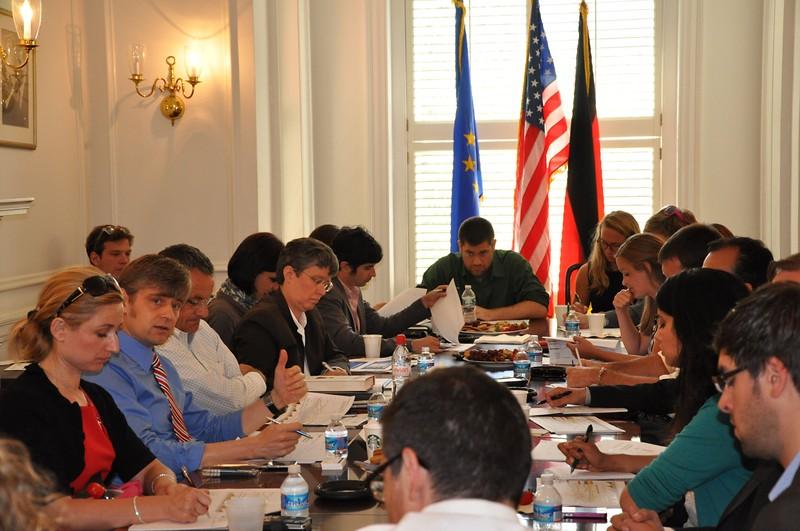Event reports
In the course of the event, Dr. Lars Hänsel, director of the KAS in Washington and Pia Bungarten, director of the Friedrich-Ebert-Foundation in Washington, explained the significance of the election and discussed possible outcomes. The roundtable was moderated by Dr. Frank-Dieter Freiling (ZDF Mainz).
In his opening remarks, Dr. Hänsel stated that two months before the general election there is no mood for a political change in Germany. He attributed this to Chancellor Merkel’s consistently high popularity rankings among the German electorate which are the result of her pragmatic style of governance. In contrast to the ideologically tainted politics in the USA, which are often characterized by polarizing excesses, Dr. Hänsel noted that Merkel displays an unequivocal consensus-driven governing style. In the recent legislative period, the Christian Democratic Party (CDU) has positioned itself as the party of the centre. By concentrating on the middle of the political spectrum, German parties differ from the American party system. Whereas the socio-political debate in Germany concentrates on the median voter, US politics are significantly influenced by extreme positions.
Although all parties submitted extensive election platforms, Dr. Hänsel believes that the forthcoming election campaign will not primarily be issue-dominated, because controversial and popular topics are missing. The current debate will rather concentrate on the competition between Chancellor Merkel and her social-democratic challenger, Peer Steinbrück. In this respect, German elections gradually approach American presidential election campaigns which are highly personalized because of the two-party system in the USA. Particularly the electoral advertising of the Social Democratic Party (SPD) focuses personalized elements, e.g. home visits, which also played an important role during the past presidential election campaigns in the US.
Moreover, Dr. Hänsel expects a short but intense election campaign for two reasons: First, the election takes place after the summer holidays. Second, parties in Germany have markedly less financial resources than Presidential candidates in the USA.
Dr. Hänsel stressed that it is too early to talk about possible election outcomes. However, latest polls indicate that the continuation of the current Christian-liberal coalition seems possible. Besides this, other constellations are possible.
The KAS has intensively monitored the US-presidential elections in 2012 and invited German experts as well as journalists to on site events. By organizing this roundtable, the Konrad-Adenauer-Stiftung made an important contribution to strengthen the dialogue between German and American journalists on similarities and differences of the democratic systems on both sides of the Atlantic.




